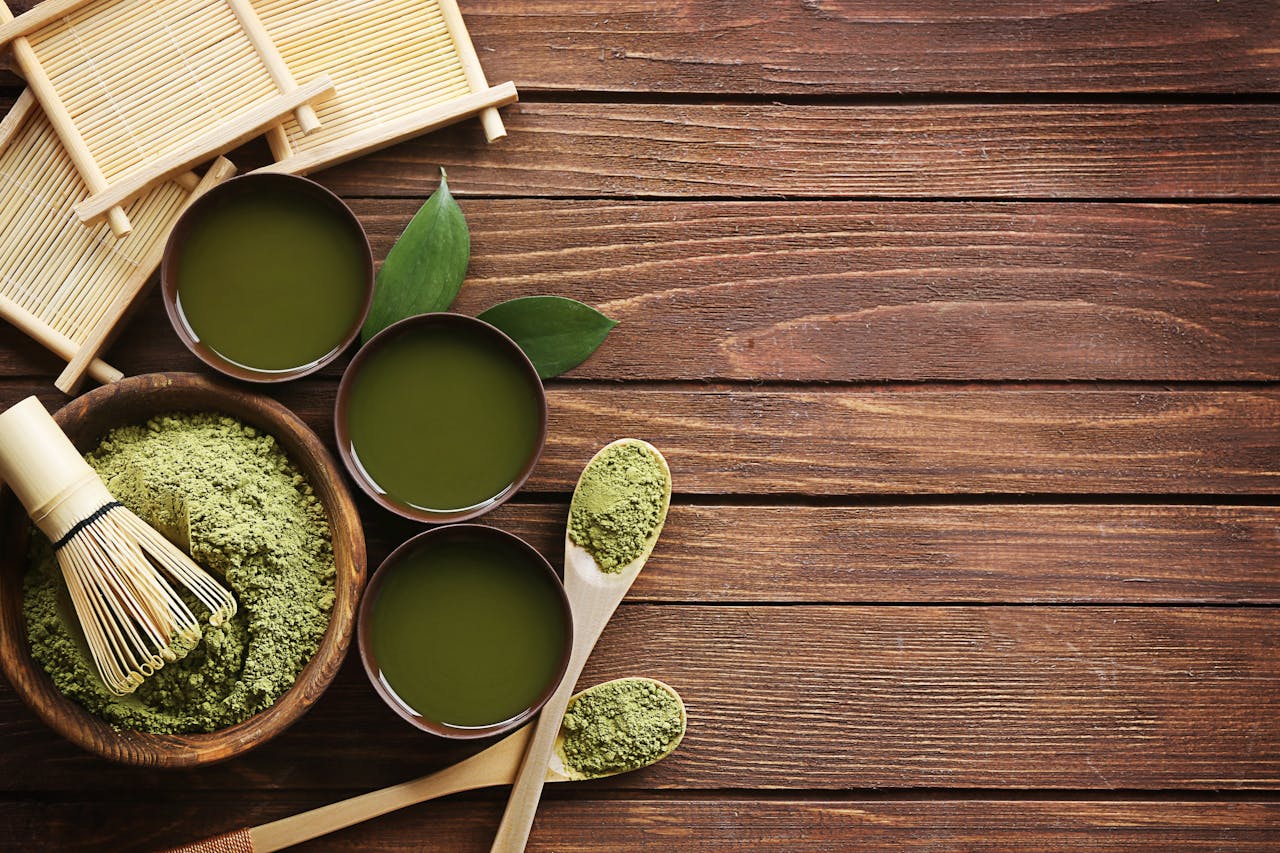
Why Matcha Deserves a Spot in Your Routine
Six Distinct Benefits of Matcha
1 - Rich in Antioxidants & Catechins:
By now, you know how important antioxidants are for helping fight inflammation.
At least if you’ve been reading my blog for several years, you know…
Most teas contain antioxidants, but matcha takes it to another level.
Because you’re consuming the whole powdered leaf rather than steeping and discarding it, matcha delivers far higher concentrations of antioxidants, especially epigallocatechin gallate (EGCG).
I’ve written about EGCG in the past.
As a refresher, it’s a catechin that helps protect your cells from oxidative stress, the same process that accelerates aging and contributes to conditions like heart disease and cancer.
One analysis estimated that matcha provides up to 137 times more EGCG than low-quality green tea, and several times more than most high-quality varieties (Healthline).
That’s not a typo—it’s a massive difference.
Antioxidants like EGCG don’t just neutralize free radicals; they also support healthy inflammation levels, which makes matcha an excellent tool for long-term health and disease prevention.
2 - Supports Cognitive Function & Reduces Stress:
Many people love coffee for its mental boost, but coffee also comes with crashes, jitters, and overstimulation.
Like green tea, matcha contains caffeine as well, but here’s the secret: it’s paired with L-theanine, an amino acid known for promoting calm and focused alertness (I’ve written about L-theanine before in the context of stress and sleep).
Together, caffeine and L-theanine create a smoother mental lift. So it doesn’t feel as bad to come down from.
Studies have shown that matcha consumption improves attention span, reaction time, and memory compared to a placebo. And because L-theanine increases alpha brain waves, it helps reduce anxiety while keeping you engaged.
This is why Zen monks have used matcha for centuries. Matcha keeps the mind sharp while also calm.
Unlike coffee, which spikes cortisol, matcha’s synergy helps buffer the stress response, making it a smarter option for people who need focus without nervous energy.
3 - Can Positively Affect Metabolism:
For anyone concerned with weight management (which most people in America are), as well as blood sugar or metabolic balance, matcha offers compelling benefits.
Animal studies show that matcha consumption reduces weight gain, improves cholesterol, lowers blood sugar, and enhances fat oxidation when combined with a high-fat diet.
While human research is still developing, the mechanisms are clear: EGCG and other catechins in matcha boost thermogenesis (your body’s calorie-burning process), improve insulin sensitivity, and reduce fat storage.
This is one reason many natural weight loss programs include green tea extract - it simply works.
Matcha just delivers a stronger dose.
4 - Potential Anti-Cancer Properties:
Though we have to be cautious here, as lab studies don’t always translate directly to human outcomes, research does suggest that matcha has anti-cancer potential.
And I believe that if you can stack anti-cancer agents in your daily regimen, that’s a positive thing!
Catechins like EGCG can interfere with tumor cell growth and may even trigger apoptosis (cell death) in certain cancer cells.
A review of both animal and cell studies found promising effects of matcha extracts in suppressing cancer cell proliferation, particularly in breast and prostate cancers (PMC).
While clinical trials are needed, these findings point to matcha as a valuable addition to an integrative cancer-prevention lifestyle, alongside a nutrient-rich diet, exercise, and toxin avoidance.
5 - Boosts Heart & Liver Health:
Heart disease and liver disease are two of the most common chronic health issues today.
Both are fueled by oxidative stress, poor metabolic health, and chronic inflammation, the exact areas where matcha shines.
Studies on green tea show significant reductions in LDL cholesterol and triglycerides, as well as improvements in arterial health.
Matcha, with its concentrated catechin content, is thought to amplify these effects.
The liver, meanwhile, plays a central role in detoxification and blood sugar regulation.
A 2015 review found that green tea catechins reduced the risk of nonalcoholic fatty liver disease in at-risk populations.
Early evidence suggests matcha can offer the same, if not stronger, support.
6. Supports Recovery, Gut Health & Anti-Aging
One of the newer areas of research is matcha’s impact on recovery and gut health.
If you have a sensitive gut or one that is just off, Matcha may help.
A 2023 clinical trial found that matcha supplementation improved recovery from fatigue in athletes and appeared to influence gut microbiota composition positively.
Beyond sports performance, this gut benefit is crucial for immune health, mental health, and long-term resilience.
Add in the antioxidant and anti-inflammatory effects, and you start to see why many researchers are looking at matcha not just as a tea, but as a true anti-aging food.
Three Things to Consider When Selecting Matcha
1 - Color & Aroma Matter:
High-quality matcha is a vibrant green—not yellow or brown. That stems from shade-grown leaves high in chlorophyll and theanine, giving it a sweet, umami character, not sharp bitterness.
The aroma should be fresh and grassy, not stale or dull.
2 - Texture & Dissolvability:
When you rub it between your fingers, quality matcha should feel silky and smooth, not coarse.
In water, it shouldn’t clump—good matcha dissolves uniformly and leaves a bright line in the “finger test”
3 - Authentic Origin & Storage:
Authentic ceremonial-style matcha is from shaded, first-harvest leaves grown in Japan’s top tea regions like Uji or Nishio.
Because matcha oxidizes quickly, store it sealed in a cool, dark place and use it within about three months after opening.
Final Thoughts on Matcha
Matcha is so much more than a trendy latte ingredient.
It’s a nutrient-dense tea with multiple verified benefits, from boosting focus and metabolic health to supporting brain and gut resilience.
I often point readers toward matcha when discussing integrative strategies for managing stress, preserving energy, and combating chronic inflammation.
Just remember: quality counts. Matcha isn’t one-size-fits-all. Invest in a bright-green, smooth, properly sourced powder, and you’ll get more than just flavor; you’ll get a whole-body health boost.



